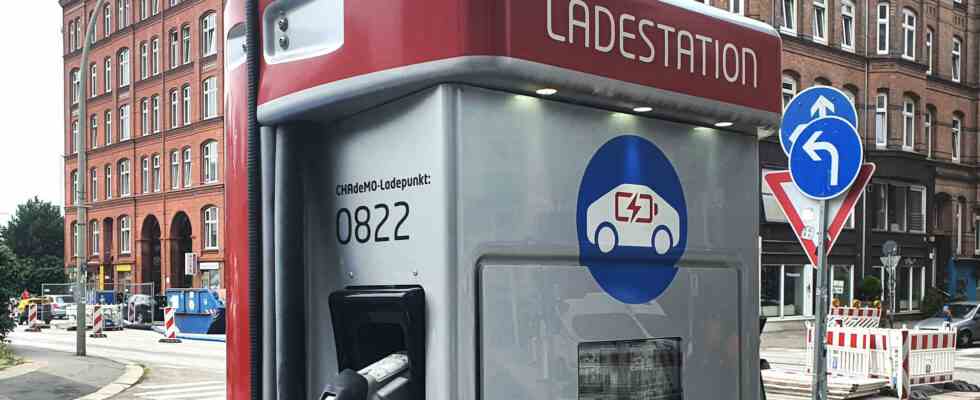Status: 04/21/2022 1:27 p.m
A current study criticizes the previous expansion of the e-charging network according to the watering can principle. In the future, public e-charging stations should be built primarily in urban areas.
In the future, public charging stations for electric cars should be built primarily in urban areas. This is what the energy transition barometer published today by the state development bank KfW calls for. So far, according to the experts, the expansion of charging stations in Germany has “tend to be evenly distributed”, i.e. just as many charging stations are being built in sparsely populated areas as in large cities.
Demand for charging points exceeds supply in cities
However, according to the study, this is inefficient: in rural areas, the offer does not cover costs, and car owners often have the option of charging their e-car on a private parking space. On the other hand, there will soon be such a high demand for charging stations in metropolitan areas that the supply will no longer be able to keep up. KfW also pointed out that in the past two years the number of electric cars has grown three times faster than that of charging stations. Instead of eight electric cars, 23 vehicles would currently have to share a public charging point.
This is well below the original EU target of one charging point for every ten electric cars. “If this trend continues, this could become a problem for the practicability of electromobility,” explained KfW chief economist Fritzi Köhler-Geib. Stronger incentives to switch to electric technology can only be given if the growing demand for charging is met in order to achieve the climate targets for the transport sector.
A lack of infrastructure is still a problem
A representative survey of 4,000 households in Germany was conducted for KfW’s energy transition barometer. In the current survey, more than half of the households surveyed stated that they could not imagine buying an electric car because of the lack of charging infrastructure. In urban districts, even 56 percent expressed this view. Other arguments against battery vehicles were the shorter range, long charging times and high purchase prices.
In rural areas, between 34 and 38 percent of those surveyed stated that they could basically charge an e-car on a private parking space. 25 percent, however, according to their own assessment, have no space for it. In the urban districts, only 19 percent said they could organize their own charging station. The need for public charging points is therefore greater there.

